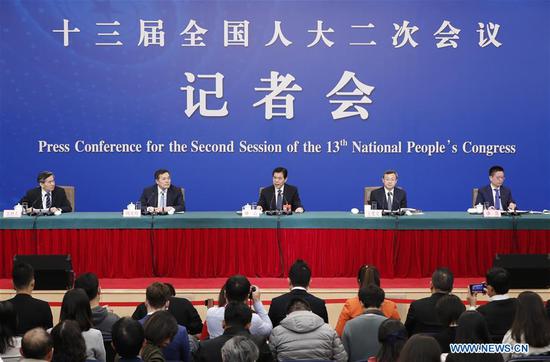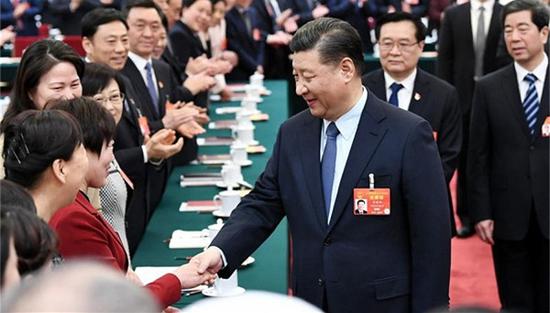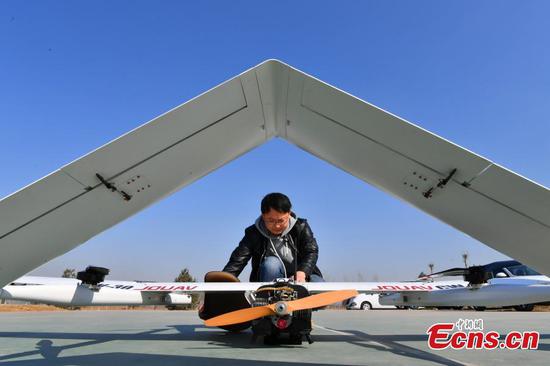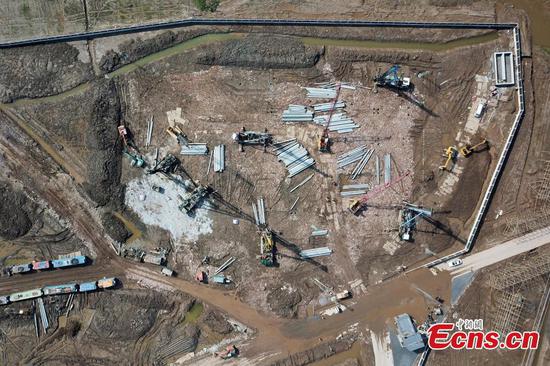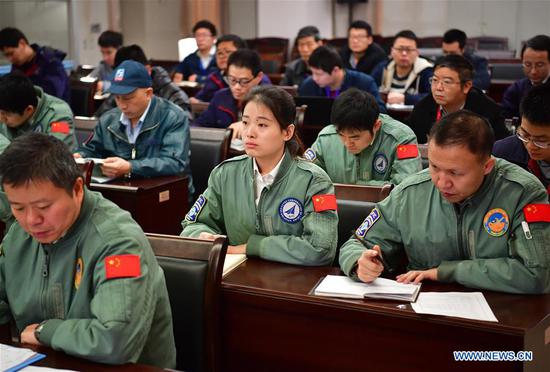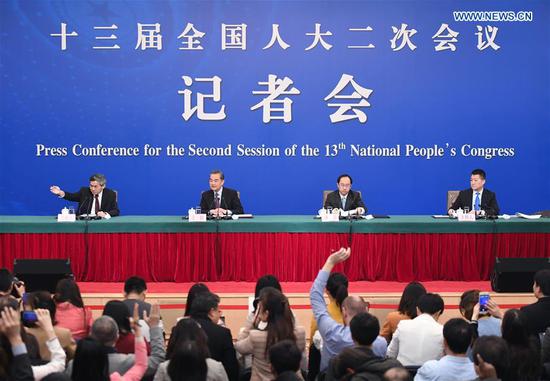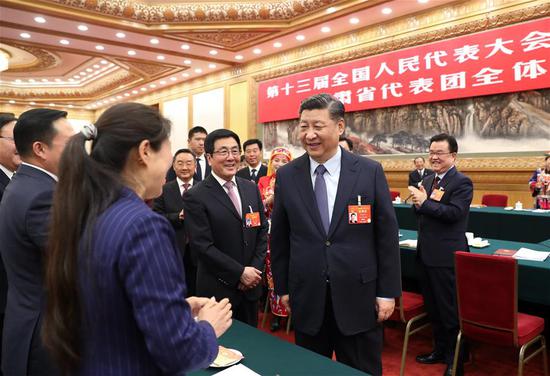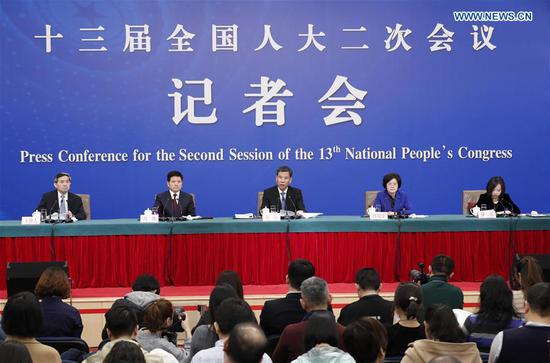
An artificial intelligence-powered robot welcomes a customer in the Xiangyang branch of Ping An Bank in Xiangyang, Hubei province. (Photo by Yang Dong/For China Daily)
The Government Work Report that Premier Li Keqiang delivered to the national legislature on March 5 emphasized that artificial intelligence (AI) technology be strengthened in emerging industries to improve the core competitiveness of the sector and improve the science and technology industries.
Since 2006, a group of scholars, represented by Geoffrey Hinton, a cognitive psychologist and computer scientist, has optimized neural network models, with the focus on AI and characterized by deep learning technology, inspiring a new wave of developments in the science and technology sectors.
Countries work out AI strategies based on their own national situations to deal with future scientific and technological competition. For example, Canada issued the Pan-Canadian Artificial Intelligence Strategy in 2017, which focuses on basic theoretical research and a pool of talents to strengthen its international reputation as a cultivator of AI talents.
The Declaration of Cooperation on Artificial Intelligence signed by the European Union states in 2018 emphasizes the moral code and legal framework of AI, with the aim of enhancing the technological and industrial capability of the EU to prepare for the social and economic changes brought about by AI.
And in 2019, the United States announced that the American AI Initiative will focus on five major aspects of research and development-science and technology; data resources; policy standards; personnel training; and international cooperation-in order to ensure its leadership in the field of AI.
As for China, it formulated the Development Planning for a New Generation of Artificial Intelligence in 2017 with the aim of becoming a leader in AI theory and application, as well as an AI innovation center through thorough research.
AI technology development relies on good quality resources. New York and Boston, for example, depend, to a large extent, on leading financial institutions and excellent scientific research from institutions such as the Cornell University and the Massachusetts Institute of Technology, to develop AI. No wonder the two cities account for one-fifth of all AI enterprises in the United States.
The San Francisco Bay Area, on the other hand, has about 2 million workers employed in onethird of all AI enterprises in the US thanks to the support of Silicon Valley, Stanford University, University of California, Berkeley, and other institutions.
China, on its part, has built three AI development areas in Beijing, Shanghai and Shenzhen.
But when it comes to AI development, the traditional internet giants are still the leaders. The companies include Google, Microsoft, Amazon, Facebook and IBM in the US, and Alibaba, Tencent, Huawei and JD.COM in China.
In terms of AI research institutes, the MIT, the University of California, Berkeley, the University College London, the Chinese Academy of Sciences, Peking University and Tsinghua University and others lead the way. Google's DeepMind, though, is a typical example of focused AI research, and notably AlphaGo, a computerized go program developed by Google DeepMind in 2016, triggered a heated public debate over human-machine intelligence game.
Given these facts, China and the US have become two important players in AI technology and research. China has devised an all-around plan for industrial development and research into cutting-edge technology. But China is still relatively weak in terms of basic AI theory. For instance, the network structural models such as convolutional neural network, generative adversarial network, and government neural network, and algorithm frameworks like TensorFlow and PyTorch are dominated by foreign institutions. Although China has had some success in advancing fundamental research, it lacks original results.
Therefore, to break through the basic AI theories and core technology barriers built by foreign countries, China needs to develop a model that is concentrated on two aspects.
First, it should make more efforts to propel basic research, boost core capabilities, and build innovation centers to strengthen the basic capability of its research in AI.
And second, it should combine the real and virtual industries to boost new technology and AI application in the domestic market. It also should cultivate a group of AI enterprises that will have a global impact such as HBAT, and introduce world-class AI talents to help the country become an AI power.
Jiang Changjun is vice-director of Chinese Association for Artificial Intelligence, and Zhao Peihai is a lecturer at the School of Computer Science and Technology, Donghua University. The views don't necessarily represent those of China Daily.









